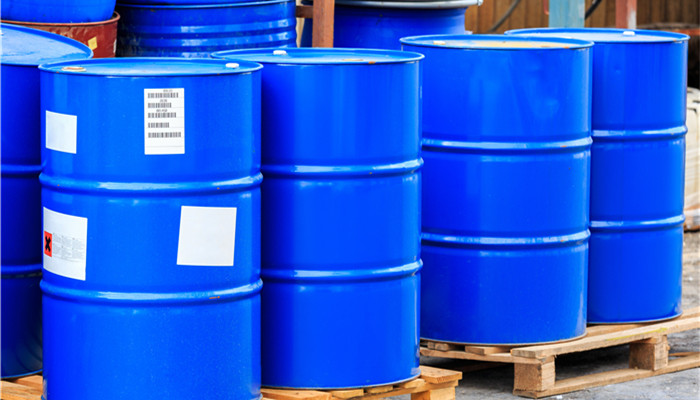
The demand for 2-butylamine is concentrated and there are few production companies in the industry.
2-Butylamine is an important organic chemical intermediate that can be widely used in medicine, pesticides, dyes, chemical additives, rubber and other industries. Among them, in the field of pesticides, 2-butylamine is used as a protective fungicide, which can effectively inhibit the growth and reproduction of fungi such as Rhizopus, Penicillium and Green Mold, and can be used in citrus, apples, pears, peaches, grapes and bananas. Preservation of fruits during storage.
2-Butylamine was studied relatively late in my country. In 1976, Hebei Agricultural University synthesized a preservative containing 2-butylamine for the first time. Since then, many units across the country have carried out related research. In 1987, the my country Food Additives Association approved 2-butylamine as a preservative for post-harvest treatment of fruits and vegetables. In 1991, Zhang Xiangdong and others studied a fruit, vegetable and food preservation tablet, which was made by mixing metabisulfite or 2-butylamine, adhesives and additives in a certain proportion and then using tableting technology. Tablets can be placed in packaging containers for fruits, vegetables and food; in 2011, Hu Chuanqing and others invented a method for the continuous preparation of 2-butylamine from methyl ethyl ketone. The conversion rate of methyl ethyl ketone can reach 90-100%, and the conversion rate of 2-butylamine can reach 90-100%. The selectivity of amines is greater than 90%, which is suitable for industrial promotion and application; in 2020, Sun Xiangmin et al. reported a method for preparing 2-butylamine through ether C4. This method has a simple process flow, good conversion rate and target product Selectivity.
2-Butylamine is a niche chemical product, and the overall number of companies has decreased. According to the “China 2-butylamine Market Monitoring and Future Development Prospects Research Report 2023-2027” released by the Industrial Research Center , At present, there are only a few companies in China’s 2-butylamine industry, and the industry market concentration is high. The main manufacturers in China’s 2-butylamine industry include Changzhou Yifei Chemical Co., Ltd., Zhejiang Jianye Chemical Co., Ltd., Zhejiang Xinhua Chemical Co., Ltd., etc. Among them, Changzhou Yifei Chemical Co., Ltd. has the largest production scale and 2-butylamine. The annual production capacity of amines is 12,000 tons, and the annual production capacity of 2-butylamine of Zhejiang Xinhua Chemical Co., Ltd. is 10,000 tons.
At this stage, the application field of 2-butylamine is relatively single, mainly concentrated in the field of pesticides, with a market share of more than 90%. In recent years, my country has implemented the zero-growth action for pesticides, and the use of pesticides has continued to achieve negative growth. The development of the pesticide technical industry has been affected to a certain extent. The demand for 2-butylamine products in the pesticide field has fluctuated, and the growth rate of industry demand is lower than the macroeconomic growth rate. In the future, industrial policy adjustments and the normalization of high-pressure environmental protection will accelerate the integration of the pesticide industry, and the demand for 2-butylamine in the pesticide field will still maintain a low growth level.
Industrial researchers said that when relevant companies invest in 2-butylamine production projects, they can lay out sec-butanol and methylethyl ketone. , butanone oxime and other upstream raw material industries and related downstream products, achieve integrated development by extending the industrial chain. On the one hand, in compliance with relevant policy requirements, we will produce sec-butanol, butanone, butanone oxime and other products, control the supply of raw materials for 2-butylamine, and stabilize the company’s production of 2-butylamine products; on the other hand, develop 2-butylamine -Butylamine’s diversified product line improves the company’s ability to resist risks.

 微信扫一扫打赏
微信扫一扫打赏

